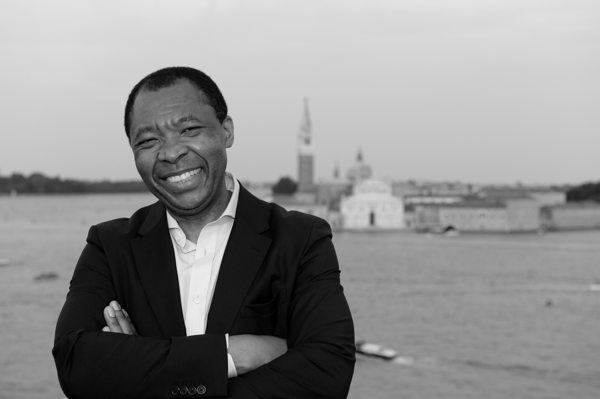Okwui Enwezor, the Nigerian-born curator and critic, has died. Enwezor, until recently the director of Haus der Kunst in Munich, was the only person after Harald Szeeman to have curated both Documenta and the Venice Biennale, and the only African to have taken the reins of either show.
Enwezor moved to New York aged 18 after one term at the University of Nigeria, to gain a degree in political science at the New Jersey City University. From there he performed poetry, which led him to art criticism, cofounding the Nka Journal of Contemporary African Art. Having organised a few smaller shows, he came to the fore as a curator with the staging of In/sight, the 1996 exhibition of 30 African photographers at the Guggenheim Museum. He was the artistic director for the Second Johannesburg Biennale in 1997, titled Trade Routes: History and Geography, and in 1998 he was named an adjunct curator at the Art Institute of Chicago. That year he was named the curator of the 2002 Documenta, the first non-European to be so. Costing $11 million and occupying five huge sites in Kassel it ushered in the era of the mega-show but was hailed by one critic as ‘one of the most radically conceived events in the history of postcolonial art practice’.
After overseeing the 7th Gwangju Biennale in 2008 and La Triennale in Paris in 2012 his 2015 Venice Biennale, All The World’s Futures, which included a live reading of the entirety of Marx’s Das Kapital, proved equally uncompromising. His tenure in Munich, though not without controversy, proved ambitious, with major monographic shows (James Casebere, Harun Farocki, Joana Hadjithomas & Khalil Joreige, Hanne Darboven, Mark Leckey and Lynette Yiadom-Boakye) and the vast 2016 global survey Postwar – Art Between the Pacific and the Atlantic 1945–65.
Enwezor said of his work ‘I always start by thinking about the context of the exhibition, its history, and the relationship of that history to what ultimately I will do with the exhibition. My question is what would be my contribution to the conversation, because it is a dialogue, a dialogue with precedents and a dialogue with a public that is increasingly global in a way that it wasn’t before.’
15 March 2019
